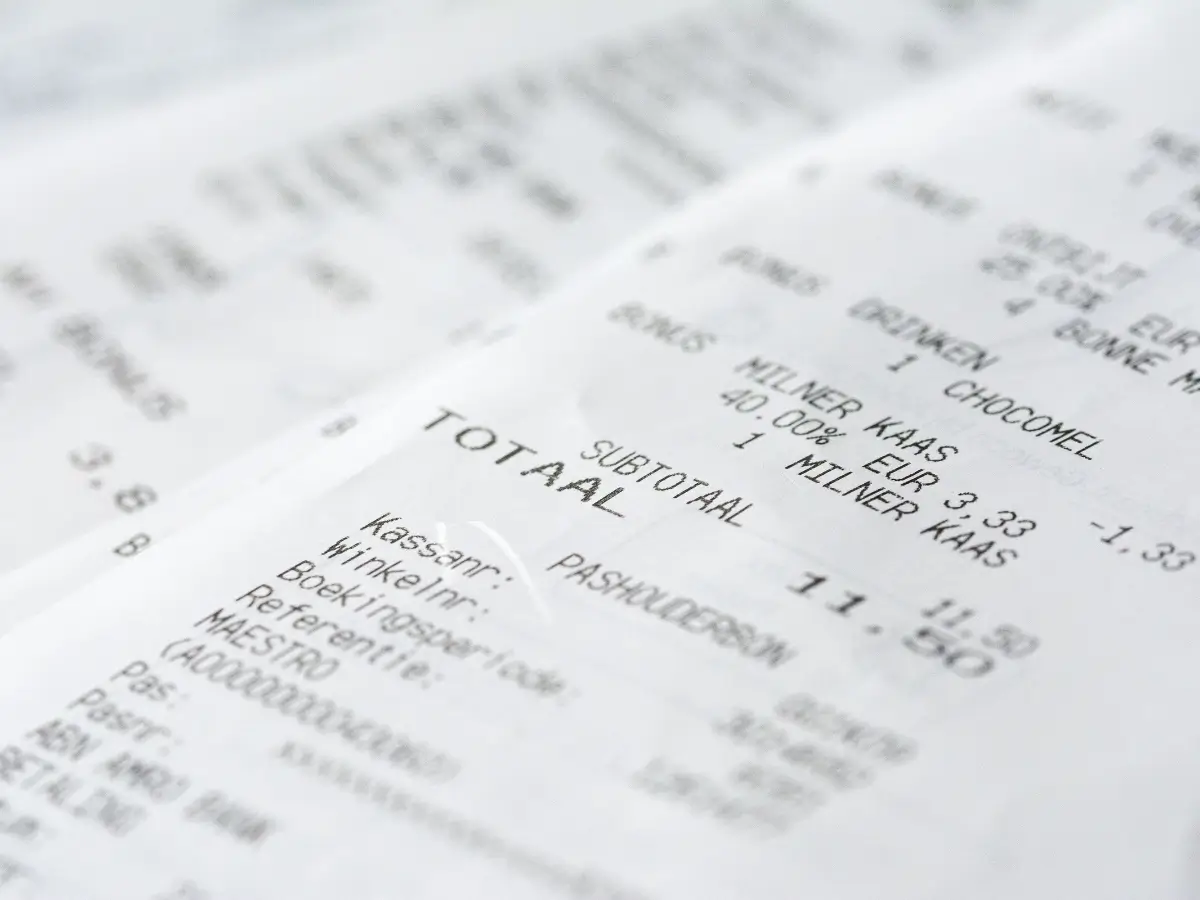The Problem with Recycling Receipts

Recycling receipts is more complicated than you might think. Learn more about the different types and how to avoid this common source of contamination.
I'm willing to bet you recycle your receipts. And why wouldn't you? After all, they're made from paper, which is recyclable, right?
In this case: wrong.
Well, mostly.
Turns out there are two types of receipts floating around out there. The paper ones, which are recyclable and compostable, if your city has an organics program, and the thermal ones, which aren't. But because it's hard to tell the difference between the two, we recommend keeping them all out of the recycling bin.
That's because 93% of thermal receipts contain Bisphenol A (BPA), an industrial chemical that's used to produce specific kinds of plastic. And, yes, this nasty chemical is as bad as it sounds. In case you don't believe us, BPA can mess with human health in high enough doses. In fact, in many countries, on top of being declared toxic, it has been outright banned.
Every year, we make about 8 billion pounds of the stuff. So, yeah. Not great.
Okay, so what should I do?
Before tossing all those receipts into the trash, see if your community has a special take-back program. If they're on the Recycle Coach network, download our app for free and we'll fill you in on everything you need to know and then some. If not, check your public works site or give them a call. If thermal receipts aren't accepted, feel free to trash'em.
Keep in mind, much of what you throw in the garbage ends up getting landfilled (or incinerated). In other words, all that BPA coating your thermal receipts ends up outside where it can leach into our soil, water, and air. If this worries you, there are other options.
You can always opt to receive an e-receipt at the point of purchase. Or, you can refuse a receipt altogether and manually track all your purchases using a budget app.
You might also like...
The Problem with Recycling Receipts

Recycling receipts is more complicated than you might think. Learn more about the different types and how to avoid this common source of contamination.
I'm willing to bet you recycle your receipts. And why wouldn't you? After all, they're made from paper, which is recyclable, right?
In this case: wrong.
Well, mostly.
Turns out there are two types of receipts floating around out there. The paper ones, which are recyclable and compostable, if your city has an organics program, and the thermal ones, which aren't. But because it's hard to tell the difference between the two, we recommend keeping them all out of the recycling bin.
That's because 93% of thermal receipts contain Bisphenol A (BPA), an industrial chemical that's used to produce specific kinds of plastic. And, yes, this nasty chemical is as bad as it sounds. In case you don't believe us, BPA can mess with human health in high enough doses. In fact, in many countries, on top of being declared toxic, it has been outright banned.
Every year, we make about 8 billion pounds of the stuff. So, yeah. Not great.
Okay, so what should I do?
Before tossing all those receipts into the trash, see if your community has a special take-back program. If they're on the Recycle Coach network, download our app for free and we'll fill you in on everything you need to know and then some. If not, check your public works site or give them a call. If thermal receipts aren't accepted, feel free to trash'em.
Keep in mind, much of what you throw in the garbage ends up getting landfilled (or incinerated). In other words, all that BPA coating your thermal receipts ends up outside where it can leach into our soil, water, and air. If this worries you, there are other options.
You can always opt to receive an e-receipt at the point of purchase. Or, you can refuse a receipt altogether and manually track all your purchases using a budget app.
You might also like...
Let's work together
We’re a proud partner to 1,700+ municipalities across North America and beyond. From local problems to larger initiatives, we’d love to have a conversation. Send us a note and we’ll be in touch as soon as possible.
